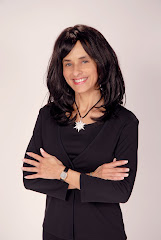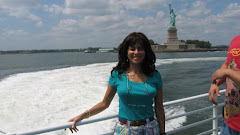
While London prepares to host the Olympics for the first time for 64 years in 2012, four other cities are making their cases to be the English capital's successors in 2016.
Chicago, Madrid, Rio and Tokyo submitted their full bid books to the International Olympic Committee by the 12 February deadline - with a decision on who will host the 2016 Games to be announced in Copenhagen, Denmark, on 2 October.
BBC Sport takes a look at the four cities bidding to host the 2016 Olympic Games.
Chicago
Odds: 11/10 favourites
Proposed dates: Olympic Games 22 July-7 August. Paralympic Games 12 August-28 August.
Overview: Chicago was chosen ahead of four other US cities to bid for the Games - Houston, Los Angeles, Philadelphia and San Francisco.
The city plans to build five new permanent venues and 11 temporary ones, with 22 of their planned 27 venues in four clusters within 15km of the Olympic Village, which will be based south of McCormick Place and itself house 11 venues. The new venues will compliment existing structures such as Soldier Field, United Center, Sears Center and Wrigley Field.
The bid costs ($49.3m/£33.3m) are being borne by the private sector, as are the costs of the Games, while infrastructure costs will be financed by the US government.
Pros: It is expected that Chicago's world-class architecture, renowned skyline, multi-cultural, historical, and pop-cultural contributions will be positive factors as the Olympics bid is weighed, while the city also boasts significant transportation infrastructure.
Although there is no official IOC rotation policy, the Americas may have an edge as previous games will have been held in Asia, Europe, and Australia: London, Beijing, Athens, and Sydney.
Cons: In a long standing dispute with the IOC, some IOC members also resent the large share of revenue taken by the United States Olympic Committee. Additionally, the controversy over the participation of Cuba in the 2006 World Baseball Classic is said to have hurt America's chances.
What they say: "We've got two great plusses, we think - the City itself, the passionate, sports-loving diverse people of our city who really want to welcome the world back to the States. And the plan itself is also a real winning plan - not just a compact Games plan but one that's in the heart of the city.
"So if the Olympics come here people will walk out of their hotel and straight into sports venues, or our theatres, our museums, our restaurants. It's a very city-central Games."
Chicago 2016 spokesman Patrick Sandusky
Face of the bid: A feast of the rich and famous are backing the bid. Basketball legend Michael Jordan has become an unofficial spokesman for Chicago's cause, while President Barack Obama - a former Illinois senator - media mogul Oprah Winfrey and Olympic champion swimmer Michael Phelps have also lent their considerable support.
Fact of the bid: Chicago was actually chosen to stage the 1904 summer Olympics, but the Games were moved to St Louis to coincide with the World's Fair.
Madrid
Odds: 15/2
Proposed dates: Olympic Games 5 August-21 August. Paralympic Games 9 September-20 September.
Overview: Madrid, one of the few major European capitals yet to host the Games, hopes to follow in the footsteps of Barcelona, which brought the Olympics to Spain in 1992.
Madrid's pedigree is a good one, with 85% of venues already built and in place, and a history of hosting Olympic qualifying events. Split into two clusters, the competition venues will be shared between the Eastern Zone and the River Zone, with Madrid currently completing new swimming and tennis venues and looking to expand and modernise existing sporting facilities.
The city's bid - estimated cost $42m (£28.6m) - will be entirely underwritten by the government.
Pros: Madrid hope to build on their 2012 bid which, though ultimately unsuccessful, prompted a good reaction from the IOC - it was overall second in technical evaluation, while the city was ranked top in seven categories; "Government support, legal issues and public opinion", "General infrastructure", "Environment", "Sports venues", "Olympic Village", "Transport concept" and "Overall project and legacy".
Cons: The greatest downfall of Madrid's bid, though, could be that the 2012 summer Games is scheduled in London and the 2014 winter Games due to take place in Sochi, Russia. Staging three consecutive Olympic Games in Europe would, on the face of it, appear unlikely.
What they say: "I can almost promise that we will make all the members of the Olympic family, everybody who has anything to do with the Olympic Games, not just 16 days of extraordinary competition but a very joyful 16 days and a very happy seven years in the run-up. Vitality is not a joke, it's a serious proposal."
Juan Antonio Samaranch Jr, Spanish IOC member
Face of the bid: Flamenco dancer Sara Baras has been named official envoy of the bid, while officials and players from local football clubs Real and Atletico Madrid - including Raul and Iker Casillas - are lending their support.
Fact of the bid: In the 2012 bidding process, Madrid actually placed first in the third round ahead of London and Paris, before being eliminated in the fourth round.
Rio de Janiero
Odds: 5/2
Proposed dates: Olympic Games 5 August-21 August. Paralympic Games 7 September-18 September
Overview: The Brazilian Olympic Commitee chose Rio de Janeiro ahead of Sao Paulo three years ago to bid for the 2016 Olympic Games. It is the first time the city has proceeded to the candidature stage after failed attempts for the 1936, 1940, 2004 and 2012 Games.
Rio plans to stage all the competitions inside the city, bringing "dynamics to the games and facilitating the athlete's interaction", according to the bid website. There will be seven competition centres in four Olympic regions - Barra, Copacabana, Deodoro, and Maracana - with football matches held in the cities of Belo Horizonte, Brasilia, Salvador and Sao Paulo.
Bid financing has been secured through a combination of public and private funding, including some in-kind contributions. Collectively, the three tiers of government have approved and will fund expenditure of $42m (£28.3m) for the bid.
Also, the city's infrastructure - including major, and recently renovated, airport Antonio Carlos Jobim International Airport (Galeao) - will aid the city's bid.
Pros: Rio's successful staging of the Pan-American Games in 2007 - labelled the "best in history" by the president of the Pan-American Sports Organisation - and their future hosting of the 2014 World Cup will only add to the city's experience and bolster their burgeoning reputation.
The fact that giving the 2016 Olympics to Brazil would uphold IOC president Jacques Rogge's "rotation of continents" philosophy also lends great weight to the potential success of the bid.
Cons: The city can count itself somewhat fortunate to have made the last four after scoring below Doha in the IOC's weighted-average score, eventually only winning through - it is believed - because of Doha's small population, lack of facilities and plans to stage the Games outside of the IOC's proposed window.
What they say: "We have a feeling that many IOC members wish to change, to give an opportunity for new continents, new cities, new countries, a new atmosphere for the Games. It is clear the youth of the world come from every part of the world."
Carlos Nuzman, president of Rio 2016 bid committee
Face of the bid: The bid has great political and popular support, from Brazil and other countries in the region, but the 'face' gets no more famous or influential than legendary footballer Pele.
Fact of the bid: Brazil has already secured the right to host the 2014 World Cup and has its sights on the fourth double hosting in history; after Mexico in 1968 and 1970, Germany in 1972 and 1974, and the United States in 1994 and 1996.
Tokyo
Odds: 3/1
Proposed dates: Olympic Games 29 July-14 August. Paralympic Games 31 August-11 September
Overview: Tokyo was selected as Japan's candidate city in August 2006, beating off competition from Fukuoka on the island of Kyushu and, reportedly, Osaka, Sapporo and Nagoya.
Tokyo is touting "the most compact and efficient Olympic Games ever" with a dramatic setting on the waterfront, enabling the city to redevelop a rundown area, previously primarily used for industry and shipping, just as London and Barcelona did in previous hostings.
Tokyo plans to construct a new 100,000-seater Olympic park in Yoyogi Park - which has upset some who believe that contradicts the proclaimed "Green Games" message - but, of the 31 planned venues, 21 already exist with many venues used during the 1964 Games set to be refurbished.
Expenses for the bid are estimated at between 5.5bn and 7bn Yen (£40.6m-£51.7m), with 1.5bn Yen coming from the government and the rest from the private sector.
Pros: The city's successful staging of the 2002 Football World Cup, 1964 Summer Olympics and 1972 and 1998 Winter Olympics mark it out as arguably the most experienced player in the last four, while it will also boast excellent public transportation, including three ring roads which are currently being built around the city to help reduce congestion problems, and ample accommodation for visitors.
Cons: Tokyo could suffer from the fact that Beijing hosted the Games in 2008, although it would by no means be the first time the Olympics have been staged on the same continent within eight years.
What they say: "I'm so happy that we have the budget already secured in cash. It is quite meaningful and I think this is a strong point of [the bid]."
Hidetoshi Maki, deputy director general, Tokyo 2016
Face of the bid: Only a few top-level sports stars hail from Tokyo and even fewer are recognisable outside of Asia - but Hidetoshi Maki has dismissed that as a failing, saying: "The Olympics is not staged by the person, it is staged by a team. We are promoting the team and the city itself."
Fact of the bid: London's successful 2012 bid has had a great influence on the Tokyo 2016 bid, with Maki adding: "We are so impressed with the London bid. They believe that the Olympics promote sport to the youth and all the ages. That idea is followed by Tokyo."
Written and compiled by Sam Lyon
Story from BBC SPORT:
http://news.bbc.co.uk/go/pr/fr/-/sport2/hi/olympic_games/7884296.stm
Published: 2009/02/12 10:18:16 GMT
© BBC MMIX






.jpg)
.jpg)




No comments:
Post a Comment